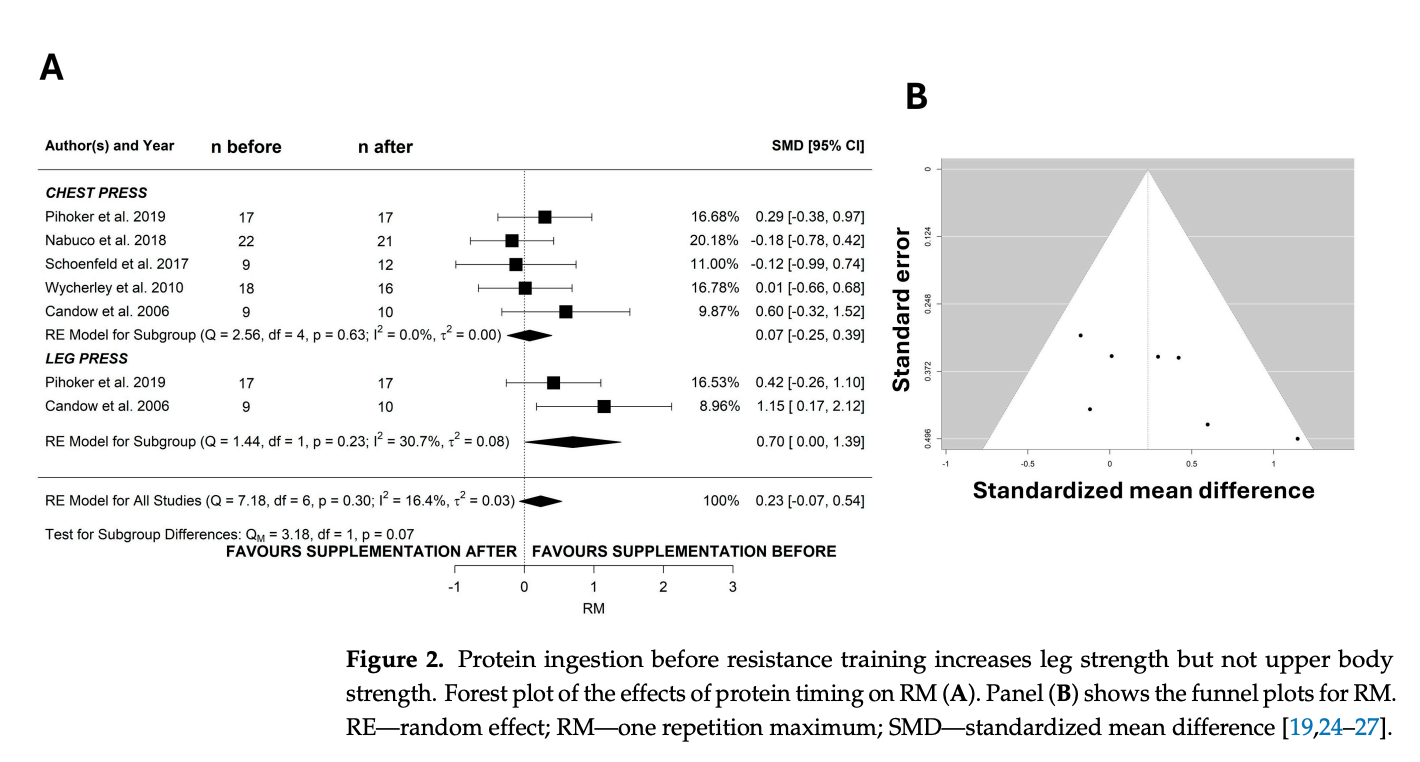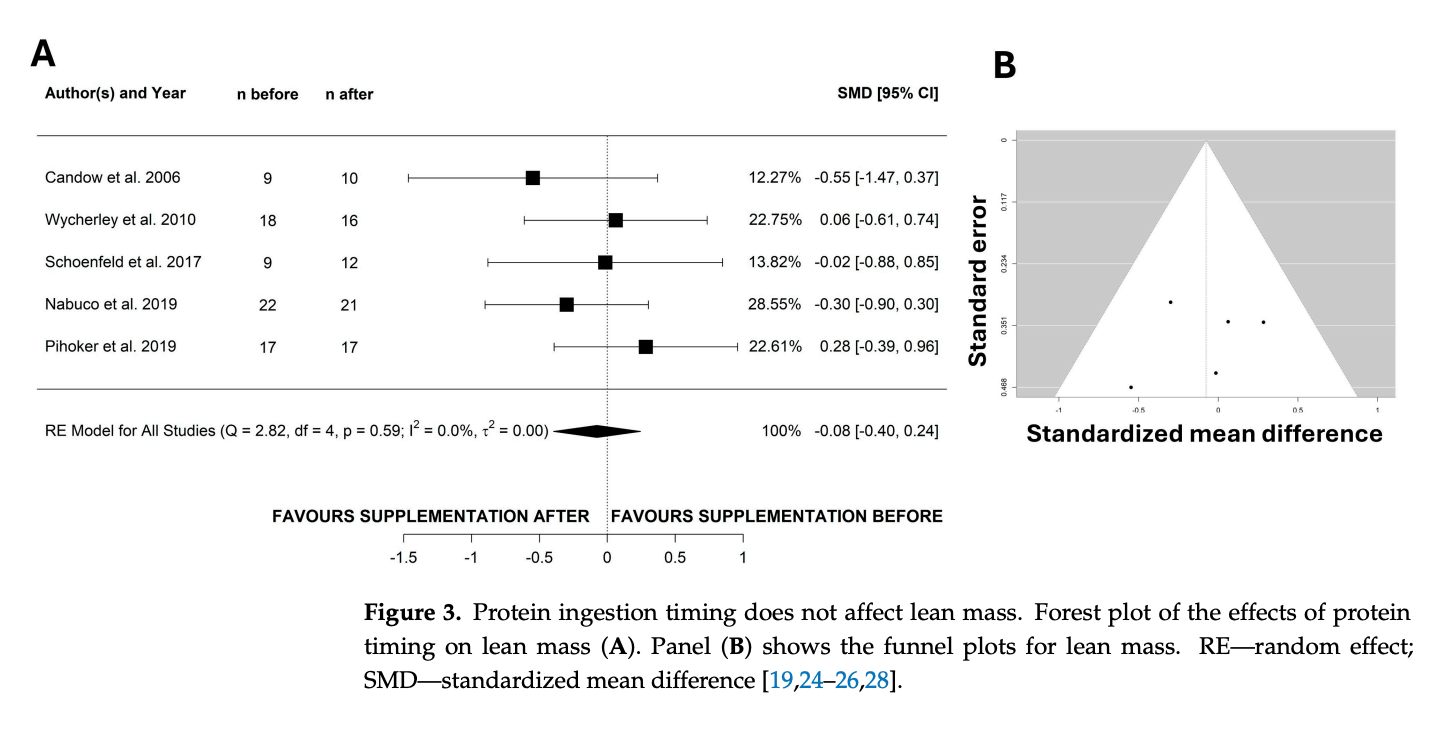Coaches and athletes have debated the so-called “anabolic window," whether consuming protein immediately before or after training matters for strength or muscle gains
Previous meta-analyses didn’t directly compare pre- and post-exercise intake in head-to-head trials.
This study aimed to clarify the role of timing by including only studies that randomized participants to consume protein either before or after exercise.
Does consuming protein before versus after training affect strength gains and muscle growth?
What Did the Researchers Do?
Researchers conducted a systematic review and meta-analysis of studies comparing protein ingestion before versus after training.
Only 5 studies (6 reports) met the strict inclusion criteria, which required that:
- The study was a randomized controlled trial (RCT).
- It directly compared protein supplementation before versus after resistance training (not versus placebo or just general supplementation).
- The intervention lasted at least 4 weeks (to reflect training adaptations, not acute responses).
- Adult human participants (>18 years).
- Protein intake occurred within a specific window: 4 hours before to 4 hours after training.
Variables
- Outcomes measured: strength (1RM in chest press, leg press, etc.) and lean body mass.
- Control for caloric and protein intake to ensure fairness.
What Were the Results?
Strength Gains
- Chest Press 1RM: No significant difference between pre- and post-exercise protein ingestion.
- Leg Press 1RM: Protein before training led to slightly greater strength gains than after, but this finding was based on only 2 studies (small sample).

Muscle Mass
- No significant differences in lean body mass gains between pre- and post-exercise protein ingestion.
- No differences in fat mass or muscle thickness (biceps, triceps, vastus lateralis).

What Does This Mean?
- The “anabolic window” appears to have little impact on most people when total daily protein intake is controlled.
- Pre-exercise protein might slightly favor leg strength, but the to have little impact onevidence is weak and limited.
- Emphasis should stay on total daily protein intake rather than stressing exact timing.
Limitations
- Small number of eligible studies; most had methodological weaknesses.
- Very few trials analyzed leg strength specifically.
- Certainty of evidence rated as low to very low.
Coach's Takeaway
- Focus on hitting your daily protein target consistently.
- Timing around workouts is flexible as pre or post both work if overall protein is adequate.
- Possibly consider pre-exercise protein for lower body strength if training legs intensely—but evidence is not strong enough to prioritize.
I hope this helps,
Ramsey




